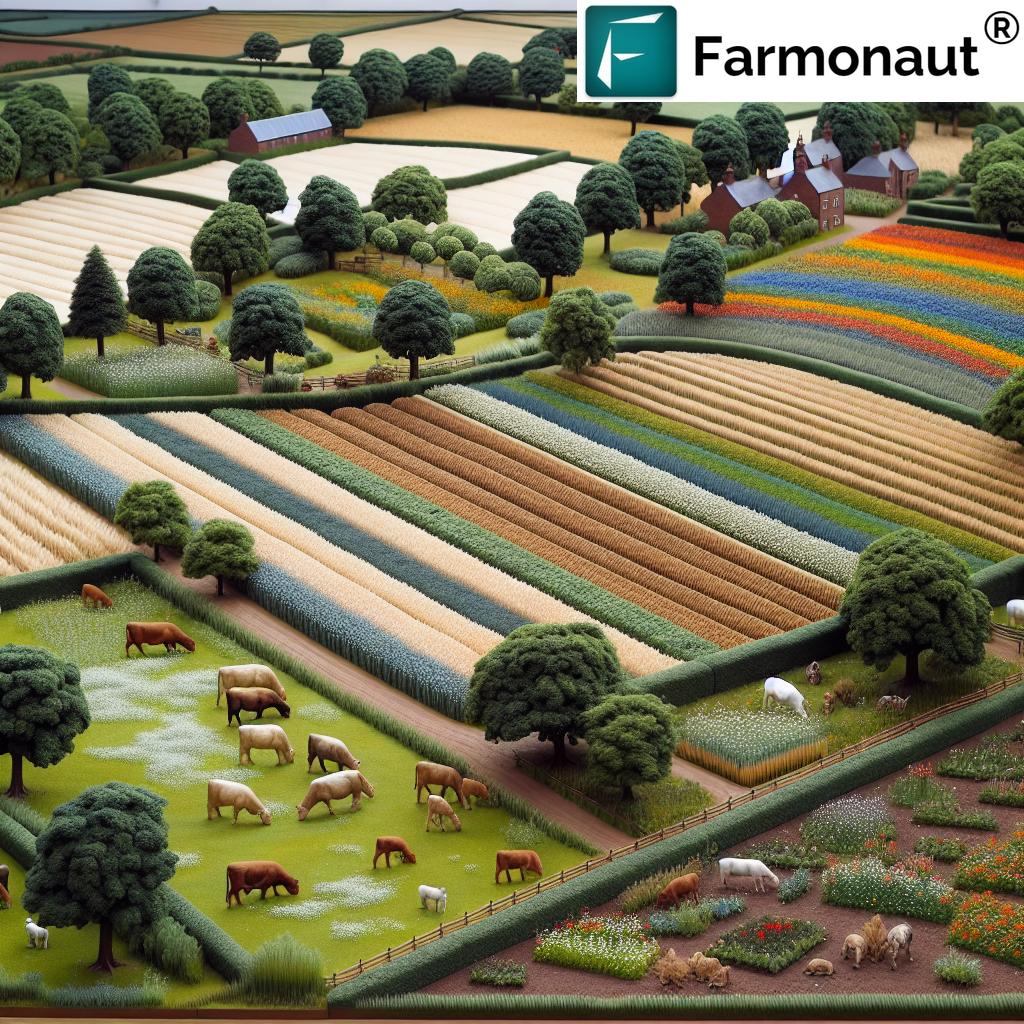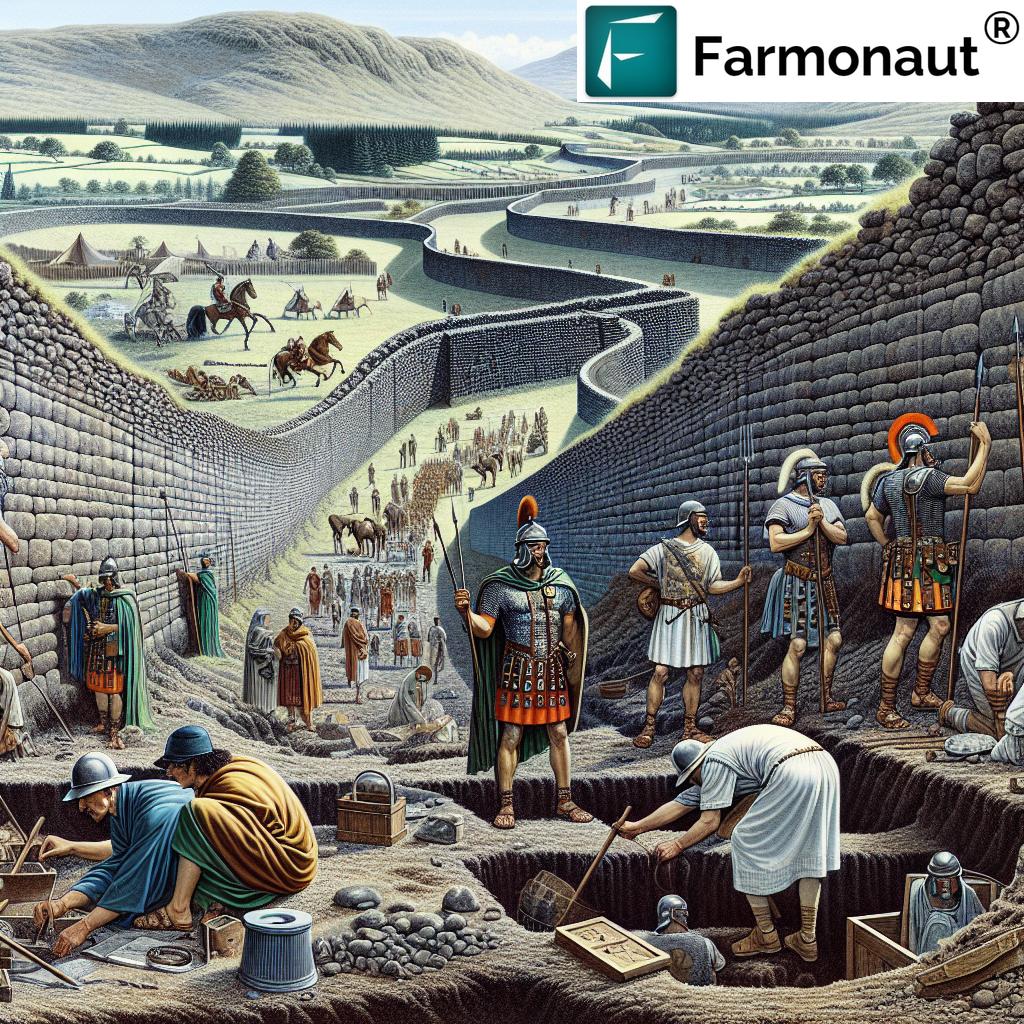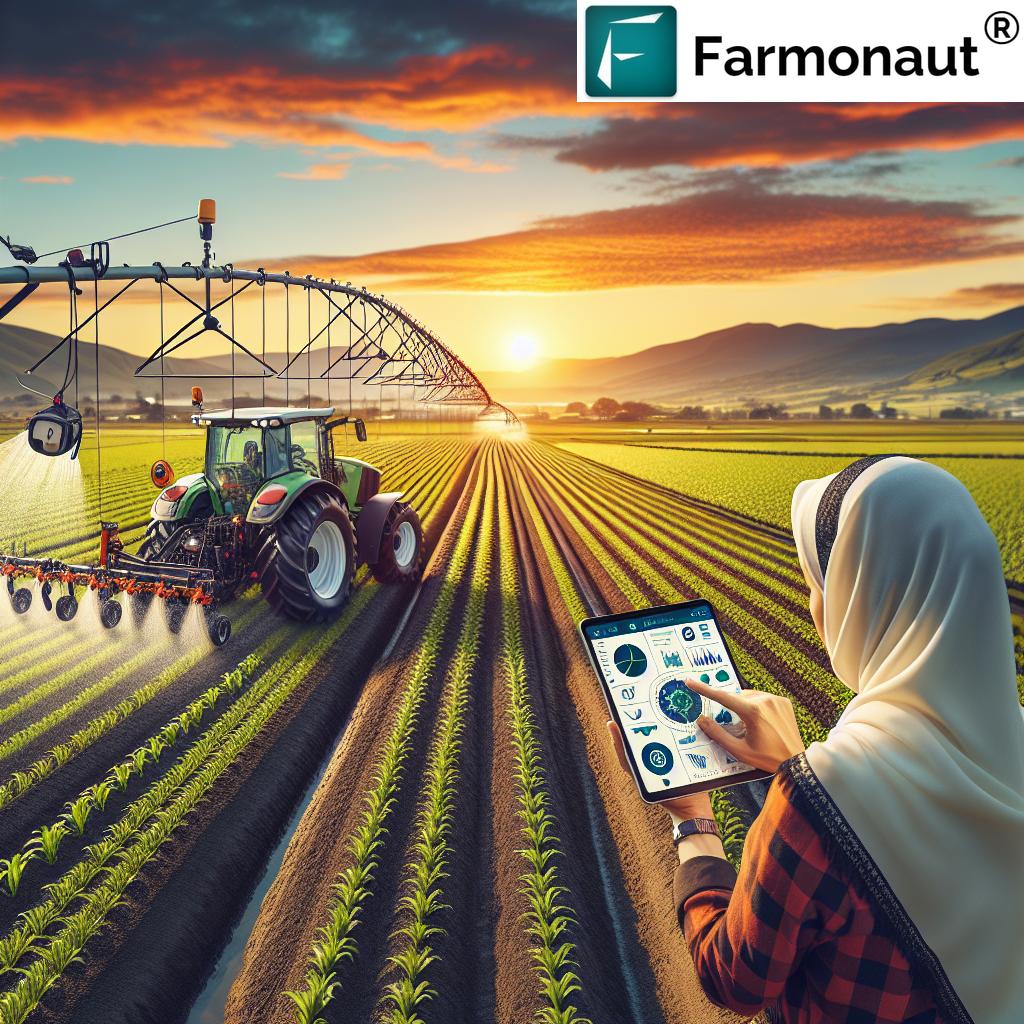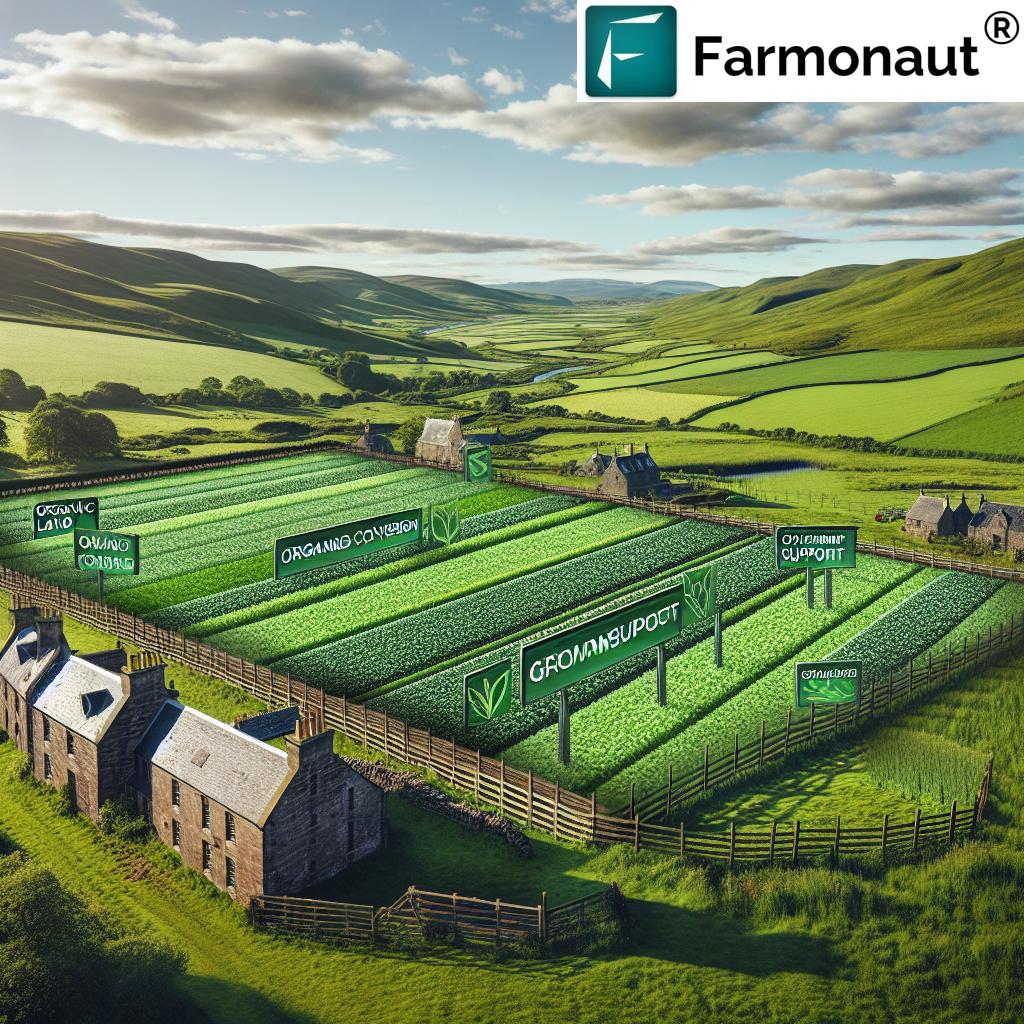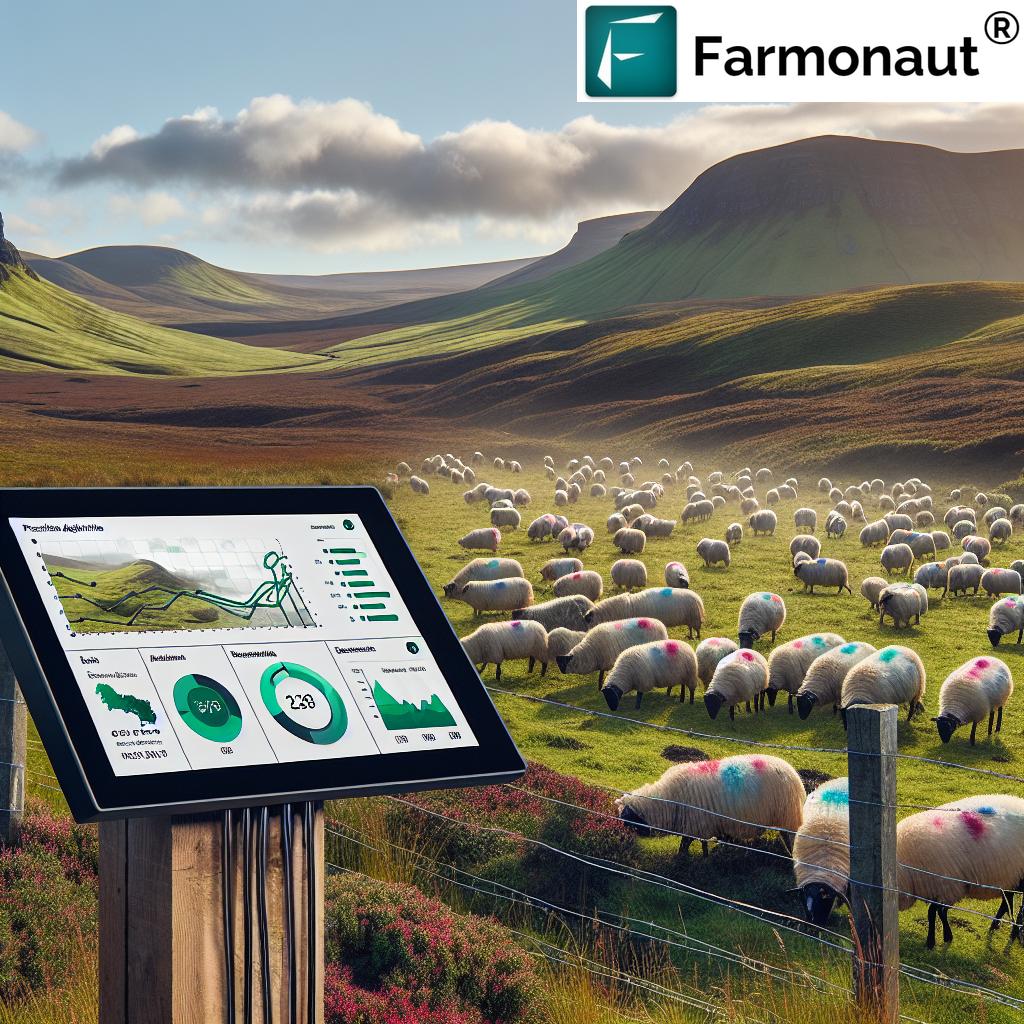Diversified Farming UK: Sustainability Steps for Success
Table of Contents
- Overview & Introduction
- Understanding Diversified Farming
- Key Benefits of Diversified Farming in the UK
- Comparative Table: Diversified Farming Practice Impacts
- Core Sustainable Practices in Diversified Farming
- Implementing Diversification in the UK: Steps and Innovations
- How Farmonaut Supports Sustainable & Diversified UK Agriculture
- Overcoming Challenges and Building Resilience
- The Future of Diversified Farming in the United Kingdom
- Frequently Asked Questions
- Farmonaut Subscription Options
“UK farms practicing diversification report up to 30% higher biodiversity compared to conventional monoculture farms.”
Overview & Introduction: The Rise of Diversified Farming in the UK
Diversified farming in the UK is fast emerging as a transformative strategy for the nation’s agricultural sector. As environmental challenges become more evident, the adoption of sustainable farming practices is not just a trend but a necessity. By integrating a variety of crops, livestock, and alternative enterprises, UK farmers can greatly improve soil health, increase biodiversity in agriculture, and achieve robust economic resilience.
This approach not only delivers environmental benefits but also aligns closely with the evolving consumer preferences for locally sourced and sustainable products. In this comprehensive guide, we explore what diversified farming means in the British context, examine the benefits and challenges, and outline actionable steps for success—all with a consistent focus on building a more resilient, sustainable, and profitable future for UK agriculture.
Understanding Diversified Farming
Diversified farming involves much more than growing a few different varieties; it’s a holistic approach that combines the cultivation of multiple crop types with the rearing of various livestock species and often includes the incorporation of alternative enterprises. This stands in sharp contrast to monocropping, where a single crop is repetitively grown. While monocropping can create short-term efficiency, it can also lead to soil depletion, heightened vulnerability to pests and diseases, and increased economic risk due to market dependency.
Diversification, on the other hand, promotes ecological balance by supporting a wider variety of species, improving resource efficiency, and enabling better risk management for farmers. This means more resilient farms, improved soil health, stronger biodiversity in agriculture, and a future-proofed sector.
Key Pillars of Diversified Farming
- Varied Crop Cultivation: Growing different plant species across the same or multiple fields to reduce risks and enrich soil through rotation.
- Livestock Integration: Rearing various animal species alongside crops, using manure for enhanced fertility and practicing managed grazing.
- Agroforestry: Combining trees with crops or animals to create layered ecosystems that boost biodiversity and help sequester carbon.
- Alternative Enterprises: Diversifying income with value-added activities like agritourism, renewable energy production, or specialty goods.
Key Benefits of Diversified Farming in the UK
Diversified farming delivers a wealth of benefits that enhance the sustainability, resilience, and profitability of farms across the United Kingdom.
1. Enhanced Biodiversity in Agriculture
- Integrating various plant and animal species creates natural habitats for multiple organisms, leading to a flourishing and more resilient ecosystem.
- Approaches like agroforestry—where trees are combined with crops or livestock—offer proven agroforestry benefits such as increased biodiversity and improved soil health ([Speciality Food Magazine](https://www.specialityfoodmagazine.com/news/the-state-of-sustainable-farming-in-the-uk?utm_source=openai)).
2. Improving Soil Health & Fertility
- Crop rotation advantages: Growing different crops in sequence helps prevent soil depletion, tackles pest and disease buildup, and maintains nutrient balance.
- Livestock inclusion: The use of manure as a natural fertilizer boosts soil structure and microbial health, reducing reliance on synthetic chemical inputs ([Tama UK](https://www.tama-uk.co.uk/blog/diversifying-farms-with-alternative-crops-and-livestock/?utm_source=openai)).
3. Economic Resilience for Farmers
- Operating multiple enterprises, like agritourism, renewable energy, and specialty products, opens new revenue streams. This provides a buffer against market fluctuations and unpredictable weather conditions ([HCR Law](https://www.hcrlaw.com/news-and-insights/farm-diversification-a-smart-move-but-not-for-everyone/?utm_source=openai)).
- Direct sale of locally sourced products responds to consumer demand, enhancing economic stability.
4. Environmental Benefits of Farm Diversification
- Climate mitigation: Diversified systems sequester more carbon, with agroforestry and reduced tillage making significant positive impacts ([Herald Wales](https://www.herald.wales/national-news/farming/the-future-of-green-farming-in-the-united-kingdom/?utm_source=openai)).
- Resilient systems are better equipped to adapt to extreme weather events and shifting climatic patterns.
Together, these benefits explain why the diversified farming approach is increasingly being adopted by UK farmers looking to build sustainable farms and secure a resilient agricultural future.
“Diversified farming can increase soil organic matter by 15% within five years, enhancing long-term sustainability in the UK.”
Comparative Table: Diversified Farming Practice Impacts in the UK
Below is a comparison of major diversified farming practices and their estimated impacts on soil health improvement, biodiversity increase, economic resilience, and climate mitigation within the UK context.
| Practice | Estimated Soil Health Improvement | Biodiversity Increase (Species/ha) |
Economic Resilience (Est. Yield Stability %) |
Climate Mitigation Impact (Est. CO₂ Reduction/ha/year) |
|---|---|---|---|---|
| Crop Rotation | High (12–18% more organic matter over 5 years) | +22 | +14% | 0.7–1.2 ton |
| Agroforestry | Very High (18–24% increase in organic matter) | +35 | +20% | 2.5–4 ton |
| Livestock Integration | Moderate to High | +18 | +12% | 0.9–1.4 ton |
| Cover Cropping | High (10–15% boost in organic matter) | +28 | +10% | 0.5–1.0 ton |
| Alternative Enterprises (Agri-tourism, Renewable Energy) | Indirect | Varies | +25–40% | Variable (depends on activities) |
Data based on published UK agricultural research and sustainability reports. For in-depth guidance and tailored solutions, see our farm management large-scale management platform.
Core Sustainable Practices in Diversified Farming
Agroforestry: The Integration of Trees for Agroecological Health
- Agroforestry combines trees with crop and livestock production, generating a resilient ecosystem and delivering agroforestry benefits such as carbon sequestration, improved soil structure, and enhanced biodiversity.
- Examples in the UK show that diverse crop-tree combinations can also protect against wind and reduce soil erosion.
Crop Rotation and Reduced Tillage: Maintaining Soil Fertility
- Alternating different crops seasonally across plots disrupts pest and disease cycles, conserves soil health, and naturally replenishes soil nutrients.
- Reduced tillage techniques limit soil disturbance, maintaining structure and reducing erosion—key for long-term sustainability ([Agritechs](https://agritechs.co.uk/sustainable-farming-practices-in-the-uk/?utm_source=openai)).
Livestock and Crop Integration: Circular Solutions
- Livestock graze on cover crops and crop stubble, providing natural fertility; in return, their manure becomes organic fertilizer for next season’s crops.
- Efficient resource recycling supports soil health improvement and reduces external input needs. This model lowers production costs and supports biodiversity.
Alternative Enterprises: Market-Driven Diversification
- Agritourism opens farms to the public, providing educational tours and direct product sale, connecting consumers with locally sourced products.
- Renewable energy in agriculture—from solar, wind, or anaerobic digestion—brings in new revenue, reduces the farm’s carbon footprint, and supports national decarbonization goals.
- Specialty crops and artisanal products appeal to high-margin markets and cater to evolving consumer preferences.
Implementing Diversification in the UK: Steps and Innovations
To successfully adopt diversified farming in the UK, it’s essential for farmers to plan carefully, invest in knowledge, and leverage technological support. Here are actionable steps, specifically localized for the British agricultural context:
1. Assess the Current Farm System
- Survey land, analyze soil health, and review local biodiversity to identify opportunities for diversification.
- Utilize data-based tools for smarter decision-making. (For example, Farmonaut’s large-scale farm management app offers satellite-based monitoring of crop health and soil status across fields.)
2. Identify Suitable Diversified Activities
- Assess potential crops, livestock species, and non-traditional enterprises that are compatible with your land and local market.
- Consider agroforestry (trees and perennials), polyculture (multiple annual crops), and renewable energy generation—each suited to various regions in the United Kingdom.
3. Seek Funding & Advisory Support
- Explore government schemes like the Environmental Land Management Scheme (ELMS) which provides incentives for sustainable practices, biodiversity improvement, and climate resilience ([Aldermore](https://www.aldermore.co.uk/insights/businesses/how-sustainable-practices-are-revolutionising-agriculture/?utm_source=openai)).
- Utilize online advisory and farm resource management tools to optimize financial planning.
Farmonaut enables satellite-based verification for crop loans and insurance, improving access to vital financing for UK farmers.
4. Upgrade Skills and Knowledge
- Attend workshops, join local farming networks, and stay updated on emerging techniques regarding sustainable farming practices.
- Leverage new research such as biodiversity monitoring tools developed by the UK Agri-Tech Centre ([UK Agri-Tech Centre](https://ukagritechcentre.com/news/empowering-biodiversity-farming-for-sustainable-future/?utm_source=openai)).
5. Build Local Market Connections
- Direct sales, community-supported agriculture (CSA), food cooperatives, and digital marketing help reach consumers interested in locally sourced food.
- Transparency through traceability enables premium pricing and access to new, sustainability-focused markets.
Innovations in Diversified Farming UK
- City farms initiatives in London demonstrate how integrating green infrastructure and educational programs into urban landscapes enhances ecological and social resilience.
- New-wave farming talent plays a key role in driving regenerative, diversified agricultural systems across the UK.
See API Developer Documentation
How Farmonaut Supports Sustainable & Diversified UK Agriculture
At Farmonaut, our mission is to make precision agriculture affordable and accessible for farmers throughout the United Kingdom and beyond. Our solutions are purpose-built to support diversified farming—making advanced technologies such as satellite-based crop health monitoring, real-time soil moisture mapping, and AI-based farm advisory practical and cost-effective for all UK farm types:
- Real-time satellite insights: Easily monitor crop health, soil condition, and field management areas for timely intervention and improved yields across diversified operations.
- AI-powered advice: Optimize resource use and improve sustainability with tailored recommendations specific to each field and management system.
- Blockchain traceability: Document every step of the product journey from farm to consumer, helping UK farms meet transparency standards and earn consumer trust.
- Carbon footprint tracking: Continuously monitor and minimize the environmental impact of diversified agricultural practices—and meet regulatory or market requirements for sustainability.
- Fleet and resource management: Streamline agribusiness operations and reduce costs across both traditional and alternative farm enterprises.
Our services are available via Android, iOS, and web apps—and for organizations, through scalable APIs. Explore our carbon footprinting tools, traceability platform, large-scale management solutions, and fleet management software to bring the future of sustainable agriculture to your UK farm.
Overcoming Challenges and Building Resilience
Initial Investment
- Transitioning to a diversified farming system may require investments in new equipment, infrastructure, and staff training.
- Careful financial planning and leveraging programs like the Environmental Land Management Scheme can help offset costs ([HCR Law](https://www.hcrlaw.com/news-and-insights/farm-diversification-a-smart-move-but-not-for-everyone/?utm_source=openai)).
Knowledge & Skills Development
- Diversification demands new skills for managing complex ecosystems and emerging alternative enterprises.
- Ongoing education, peer collaboration, and working with advisory services can smooth the implementation process. Online platforms such as Farmonaut’s advisory system provide continual learning and real-time support.
Expanding Market Access
- Building a customer base for new products takes time. UK farmers can tap into digital platforms to reach sustainability-focused consumers and specialty markets ([JBS Cambridge](https://www.jbs.cam.ac.uk/2025/how-farmers-big-and-small-can-boost-sustainability/?utm_source=openai)).
- Transparency and traceability help meet certification and consumer preferences for locally sourced and sustainable agricultural products.
Regulatory & Environmental Compliance
- Ensuring new activities are aligned with UK environmental, wildlife protection, and health and safety regulations is essential.
- Monitoring carbon emissions, biodiversity, and soil status helps future-proof farms against regulatory shifts.
The Future of Diversified Farming in the United Kingdom
The future of diversified farming in the UK is promising, with sustainability at its core. Policy and research continue to bolster sustainable farming practices:
- Environmental Land Management Scheme (ELMS): Incentivizes farmers for environmental benefits like enhanced biodiversity, improved soil health, and water quality improvements through financial support.
- UK Agri-Tech Centre: Ongoing research and technology development—including biodiversity monitoring—empowers British farmers to adopt more effective diversification systems.
- Market Trends: With evolving consumer preferences demanding transparency and sustainability, diversified UK farms remain well-placed to capture premium markets and stay resilient.
By embracing diversification, UK farmers are not only responding to immediate challenges but contributing to a sustainable agricultural system that can stand the test of time for generations to come.
Frequently Asked Questions (FAQ)
What is diversified farming, and how does it differ from monoculture?
Diversified farming incorporates the cultivation of multiple crop types, livestock rearing, and often alternative income-generating activities. In contrast, monoculture specializes in a single crop species or enterprise, increasing risks such as soil depletion and pest vulnerability.
How does diversified farming improve soil health?
By rotating crops, integrating livestock, and reducing tillage, diversified approaches maintain soil structure, boost organic matter, prevent erosion, and lower the need for synthetic chemical inputs.
What are the main environmental benefits of farm diversification?
Environmental benefits of farm diversification include increased biodiversity, improved soil health, greater carbon sequestration, and better resilience to climate change and extreme weather.
How do UK farmers get started with diversification?
Start by assessing current assets and local market opportunities, then identify suitable diversified activities such as agroforestry, agritourism, or renewable energy. Utilize support tools like Farmonaut for planning and monitoring.
Can Farmonaut help UK farms with sustainable diversification?
Yes, our platform is designed to aid UK farmers with real-time crop health monitoring, AI-based advisory services, resource management, carbon footprint tracking, and transparent product traceability—empowering sustainable diversification across British agriculture.
What are the economic advantages of diversification?
Diversification increases economic resilience for farmers by buffering against market and climate shocks, providing new revenue streams, and meeting consumer demand for premium, sustainable products.
Are there government schemes supporting diversification in the UK?
Yes, UK government programs such as ELMS offer financial incentives for environmental stewardship, conservation, and diversified farm systems. Research institutions and local councils may also provide support.
How important is transparency and traceability in diversified farming?
Extremely important. Traceability builds consumer trust, opens access to new markets, and ensures compliance with sustainability standards. Farmonaut’s blockchain solutions make this process secure and straightforward.
Farmonaut Subscription Options
Discover how remote sensing, AI, and traceability solutions from Farmonaut can transform your diversified UK farm. Monitor your fields, optimize your resources, and ensure sustainability with tailored, cost-effective pricing options:
Final Thoughts: Advancing Sustainability Through Diversified Farming in the UK
As we look ahead, the adoption of diversified farming represents both a challenge and a substantial opportunity for the United Kingdom’s agricultural sector. With the right practices, support, and technologies, UK farmers can build more resilient, sustainable, and prosperous farming systems—protecting our soil, nurturing biodiversity, and ensuring a robust economic future for rural communities.
For those seeking to implement, monitor, and optimize diversified or sustainable practices, Farmonaut is here to help integrate cutting-edge data-driven solutions—delivering actionable insights and real market value for the 21st-century UK farm.
Diversified farming in the UK: Your pathway to sustainability, resilience, and long-term success.

